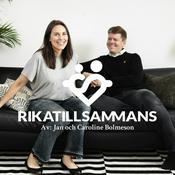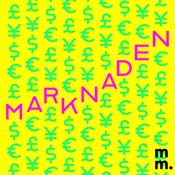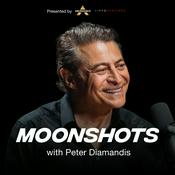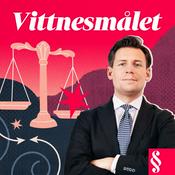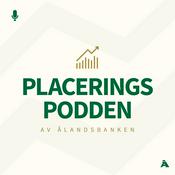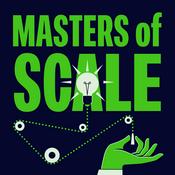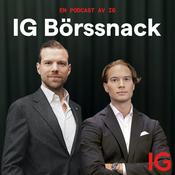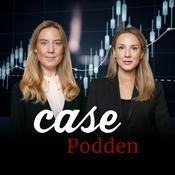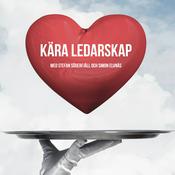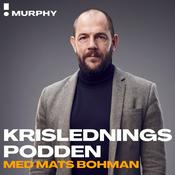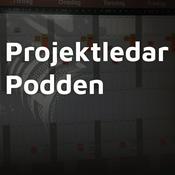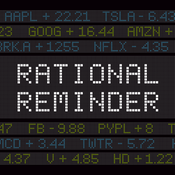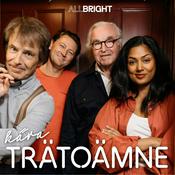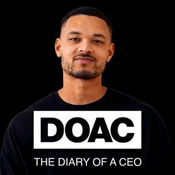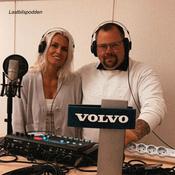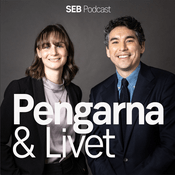Writing Excuses
Mary Robinette Kowal, DongWon Song, Erin Roberts, Dan Wells, and Howard Tayler
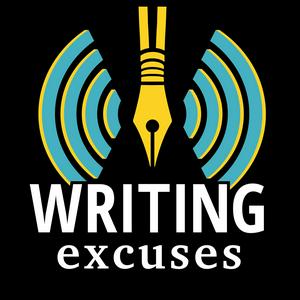
Senaste avsnittet
973 avsnitt
- Our hosts take on the Hero’s Journey—where it came from, why it endures, and why it can make writers uneasy. They break it down as a tool (and not a rule), exploring how pattern recognition works in storytelling without turning structure into a formula. Along the way, they discuss reluctant heroes, mentors, departures, and returns, using familiar examples from fantasy, film, and beyond. The conversation also digs into how stories can satisfy expectations—or deliberately invert them—without becoming predictable or tropey.
Homework:
Take a simple outline of the Hero’s Journey (we’ll include one in the liner notes). On an index card or Post-it, list as many stories, films, or shows as you can that follow this pattern, just to see how and where it shows up.
ANNOUNCEMENTS:
2/15 Cruise Prices Increase
The final WXR cruise* sets sail for Alaska in September 2026—get your tickets now before prices increase on February 15th!
Credits: Your hosts for this episode were Erin Roberts, DongWon Song, and Howard Tayler. It was produced by Emma Reynolds, recorded by Marshall Carr, Jr., and mastered by Alex Jackson.
Join Our Writing Community!
Writing Retreats
Newsletter
Patreon
Instagram
Threads
Bluesky
TikTok
YouTube
Facebook
Our Sponsors:
* Check out Gusto: https://gusto.com/WX
* Check out Quince: https://quince.com/wx
* Check out Talkiatry: https://talkiatry.com/WX
Support this podcast at — https://redcircle.com/writing-excuses2130/donations
Advertising Inquiries: https://redcircle.com/brands
Privacy & Opt-Out: https://redcircle.com/privacy - Plot isn’t a set of commandments—it’s a collection of patterns we’ve learned to recognize. This episode kicks off the season’s deep dive into deconstructing plots, asking what different story structures are really doing beneath the surface and why they work (or don’t). Our hosts unpack plot as a toolbox rather than a formula, exploring action plots vs. emotion plots, Western vs. non-Western structures, and how audience expectations shape everything from middles to endings. This conversation reframes plot as a way to pull readers through a story—not to box writers in.
Homework:
Pick a story you enjoy and gently reverse-engineer it. Go scene by scene and label each one simply as “good thing happened” or “bad thing happened.” Look for patterns you didn’t realize were there.
ANNOUNCEMENTS:
2/15 Cruise Prices Increase
The final WXR cruise* sets sail for Alaska in September 2026—get your tickets now before prices increase on February 15th!
Credits: Your hosts for this episode were Erin Roberts, DongWon Song, and Mary Robinette Kowal. It was produced by Emma Reynolds, recorded by Marshall Carr, Jr., and mastered by Alex Jackson.
Join Our Writing Community!
Writing Retreats
Newsletter
Patreon
Instagram
Threads
Bluesky
TikTok
YouTube
Facebook
Our Sponsors:
* Check out Gusto: https://gusto.com/WX
* Check out Quince: https://quince.com/wx
* Check out Talkiatry: https://talkiatry.com/WX
Support this podcast at — https://redcircle.com/writing-excuses2130/donations
Advertising Inquiries: https://redcircle.com/brands
Privacy & Opt-Out: https://redcircle.com/privacy - This week, we turn our attention to one of the most stubborn traps writers fall into: assuming someone else’s process should work for you. Building on last episode’s conversation about intentions, the hosts shift the focus from what you should do to how you can figure out what actually works, starting with observation, pattern-spotting, and a little self-compassion.
The discussion moves through practical ways to lower friction and build supportive rituals—linking tasks together, listening to physical and emotional cues, and treating yourself like your own best assistant. Along the way, the hosts emphasize that your reactions are data, your process is allowed to change, and permission to be human is often the missing tool. The goal isn’t discipline for discipline’s sake, but a writing life that adapts to you.
Homework:
Make a list of all the steps in your writing process, starting with the smallest, most concrete actions and working outward to the bigger ones. Then go through that list and notice which parts are serving you, which aren’t, and which you might want to change—without worrying yet about how to change them.
ANNOUNCEMENTS:
Last Annual Cruise
The final WXR cruise* sets sail for Alaska in September 2026—don’t miss your chance to be part of it. Learn more and sign up here.
Call for Writing Breakthroughs
Have you had a breakthrough in your writing because of Writing Excuses? If so, we want to hear about it. Fill out this Writing Breakthroughs Google Form for a chance to be featured in a WX Newsletter!
Credits: Your hosts for this episode were Erin Roberts, DongWon Song, and Mary Robinette Kowal. It was produced by Emma Reynolds, recorded by Marshall Carr, Jr., and mastered by Alex Jackson.
Join Our Writing Community!
Writing Retreats
Newsletter
Patreon
Instagram
Threads
Bluesky
TikTok
YouTube
Facebook
Our Sponsors:
* Check out Gusto: https://gusto.com/WX
* Check out Quince: https://quince.com/wx
* Check out Talkiatry: https://talkiatry.com/WX
Support this podcast at — https://redcircle.com/writing-excuses2130/donations
Advertising Inquiries: https://redcircle.com/brands
Privacy & Opt-Out: https://redcircle.com/privacy - Season 21 kicks off with a new theme, a fresh tagline, and a renewed focus on what Writing Excuses has always been about: tools, not rules. The hosts unpack why prescriptive writing advice so often falls short, and how understanding why tools gives you the freedom to adapt—or discard—them.
And so for Season 21, we’re going to focus on deconstructing structure in order to better understand the tools that make up various story structures, and what we can learn from each. We’ll be analyzing everything from exposition to Try/Fail cycles to Save the Cat, as we dig into how structure can function more like jazz and less like a rigid formula. We hope this year of episodes (every Sunday morning, folks!) helps you choose what actually serves you as a writer.
Homework
Write down one thing you are letting go of from last year, starting with the sentence “I am letting go of…”. Then write one intention for the new year, starting with “This year I am embracing…”.
ANNOUNCEMENTS:
Last Annual Cruise
The final WXR cruise* sets sail for Alaska in September 2026—don’t miss your chance to be part of it. Learn more and sign up here.
Call for Writing Breakthroughs
Have you had a breakthrough in your writing because of Writing Excuses? If so, we want to hear about it. Fill out this Writing Breakthroughs Google Form for a chance to be featured in a WX Newsletter!
Credits: Your hosts for this episode were Howard Tayler, Erin Roberts, DongWon Song, and Mary Robinette Kowal. It was produced by Emma Reynolds, recorded by Marshall Carr, Jr., and mastered by Alex Jackson.
Join Our Writing Community!
Writing Retreats
Newsletter
Patreon
Instagram
Threads
Bluesky
TikTok
YouTube
Facebook
Our Sponsors:
* Check out Gusto: https://gusto.com/WX
* Check out Quince: https://quince.com/wx
* Check out Talkiatry: https://talkiatry.com/WX
Support this podcast at — https://redcircle.com/writing-excuses2130/donations
Advertising Inquiries: https://redcircle.com/brands
Privacy & Opt-Out: https://redcircle.com/privacy - As our 20th season comes to a close, we reflect on the end of 2025 and a major transition for the show, as Dan Wells steps away from Writing Excuses as a full-time core host. Dan shares the thoughtful, hard-won reasoning behind his decision, while the rest of the team reflects on what his presence has meant to this podcast and our community.
We recorded the first half of this episode in June and the second half in December 2025. Why is that? Because we wanted to discuss our plans for the rest of the year and later return to see how those plans actually played out—a kind of time capsule for all of us. Along the way, we talk candidly about change, ambition, and the reality of creative lives that rarely move in straight lines.
Homework:
1. We've created a publicly accessible Patreon post titled “Thank you Dan Wells” for you, our listeners, to share things you've learned from Dan, appreciation you wish to express, or even your favorite stories about Dan. Go to patreon.com/WritingExcuses and look for this post.
2. Final Homework From Dan:
Watch some of the show Twisted Metal (warning: there’s a lot of gore and swearing). If that's not your cup of tea, then check out the interactive novel, The Book of Hungry Names by Kyle Marquis. See what you can learn from these pieces of media—they are master storytellers!
ANNOUNCEMENTS:
Last Annual Cruise
The final WXR cruise* sets sail for Alaska in September 2026—don’t miss your chance to be part of it. Learn more and sign up here.
*Scholarship applications for our cruise are open now until December 31st, 2025. You can learn more and apply here.
Call for Writing Breakthroughs
Have you had a breakthrough in your writing because of Writing Excuses? If so, we want to hear about it. Fill out this Writing Breakthroughs Google Form for a chance to be featured in a WX Newsletter!
Credits: Your hosts for this episode were Howard Tayler, Dan Wells, Erin Roberts, DongWon Song, and Mary Robinette Kowal (for the first half). It was produced by Emma Reynolds, recorded by Marshall Carr, Jr., and mastered by Alex Jackson.
Join Our Writing Community!
Writing Retreats
Newsletter
Patreon
Instagram
Threads
Bluesky
TikTok
YouTube
Facebook
Our Sponsors:
* Check out Gusto: https://gusto.com/WX
* Check out Quince: https://quince.com/wx
* Check out Talkiatry: https://talkiatry.com/WX
Support this podcast at — https://redcircle.com/writing-excuses2130/donations
Advertising Inquiries: https://redcircle.com/brands
Privacy & Opt-Out: https://redcircle.com/privacy
Fler podcasts i Näringsliv
Trendiga poddar i Näringsliv
Om Writing Excuses
Fifteen minutes long, because you're in a hurry, and we're not that smart.
Podcast-webbplatsLyssna på Writing Excuses, RikaTillsammans | Om privatekonomi & rikedom i livet och många andra poddar från världens alla hörn med radio.se-appen

Hämta den kostnadsfria radio.se-appen
- Bokmärk stationer och podcasts
- Strömma via Wi-Fi eller Bluetooth
- Stödjer Carplay & Android Auto
- Många andra appfunktioner
Hämta den kostnadsfria radio.se-appen
- Bokmärk stationer och podcasts
- Strömma via Wi-Fi eller Bluetooth
- Stödjer Carplay & Android Auto
- Många andra appfunktioner


Writing Excuses
Skanna koden,
ladda ner appen,
börja lyssna.
ladda ner appen,
börja lyssna.

